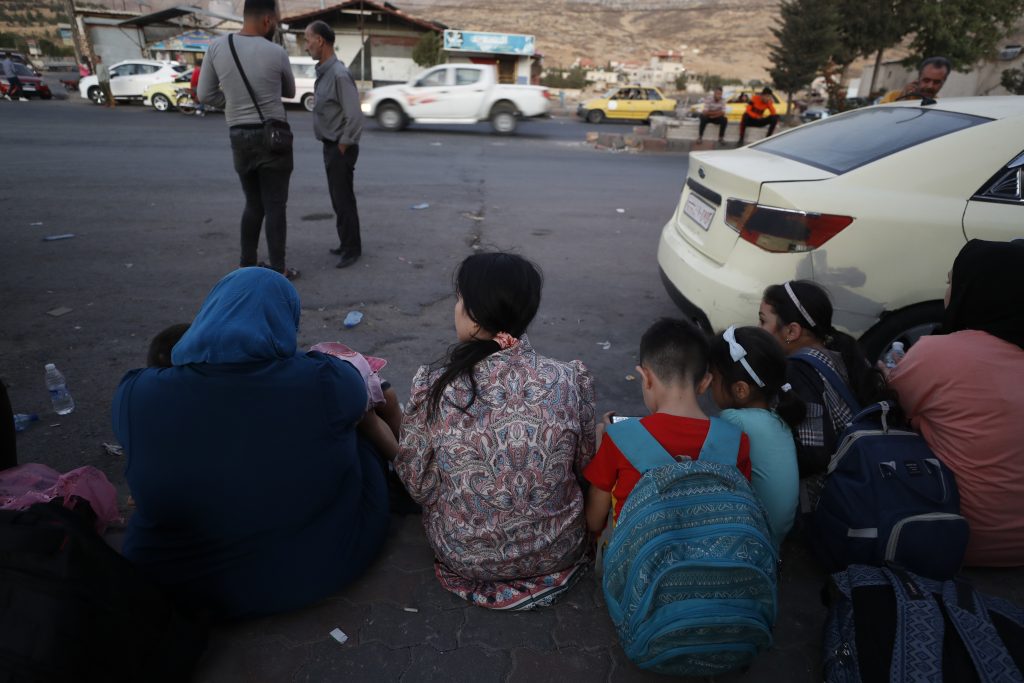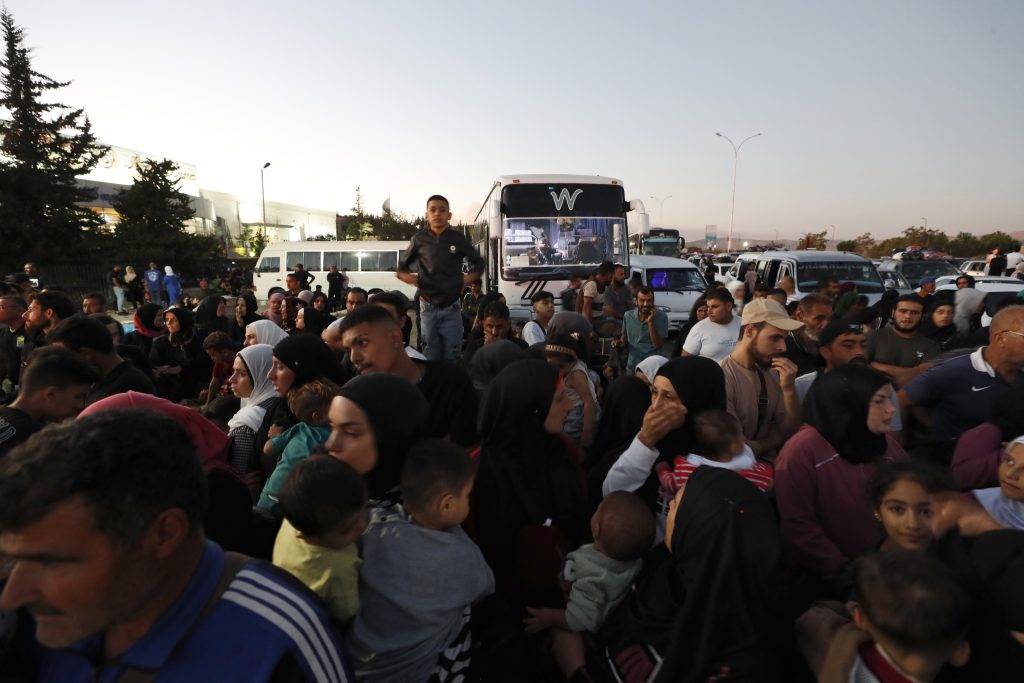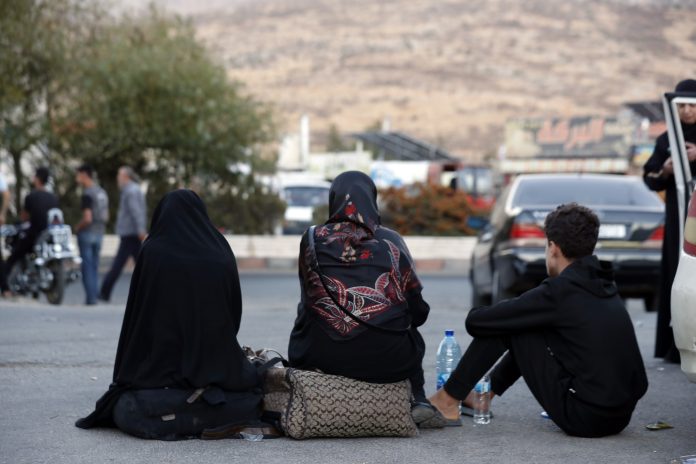Families escaping the escalating conflict in Lebanon continued to pour into Syria in increasing numbers on Wednesday, enduring hours of traffic in their attempt to reach the relative safety of a neighboring country also scarred by war.
U.N. officials estimated that thousands of Lebanese and Syrian families had already crossed the border, with many more expected as Israel intensifies its aerial bombardment of southern and eastern Lebanon. The attacks, which Israel claims are aimed at Hezbollah fighters and weapons, have reportedly killed more than 600 people this week, including at least 150 women and children, according to local officials.
Traffic jam reached many miles before border
Beginning Monday, lines of buses and cars stretched for kilometers at the Syria border, with some families making the journey on foot. Upon arrival in Syria, many were forced to wait for hours to be processed by overwhelmed border officials. Relief workers distributed food, water, mattresses, and blankets to those waiting.

“Many will have to spend the night outdoors waiting their turn,” said Rula Amin, a spokesperson for the U.N.’s refugee agency, in a statement. She added that some of those arriving from Lebanon bore visible injuries from recent attacks.
The mass migration marks a stark reversal, as Lebanon has been hosting over one million Syrian refugees since the war in Syria broke out in 2011. That conflict, which began with peaceful anti-government protests, quickly spiraled into a brutal civil war following a violent crackdown by Syrian authorities.
In the Syrian border town of Jdeidet Yabous, families sat despondently on the roadside, some using their bags as makeshift seats while they waited for transportation. Many reported spending eight to nine hours in traffic just to cross the border. Before entering Syria, large crowds packed into government offices for processing, and Syrian citizens were required to exchange $100 for Syrian pounds — a measure aimed at boosting the local currency. However, the surge in demand caused a shortage of Syrian pounds at the border.
Some of those crossing into Syria were refugees returning to their homeland. Emad al-Salim, who fled Aleppo in 2014, had been living in Tyre, Lebanon, when the latest bombardment began. Fearing for his family’s safety, he gathered his wife and six children and fled. “There were houses destroyed in front of me as we were coming out,” he said. “It took us three days to get here.”
“Where am I going to go?”
Others, like Nada Hamid al-Lajji, had been in Lebanon for years but now faced an uncertain future. After seven years in Lebanon, she and her family returned to Syria, but al-Lajji expressed uncertainty about where they would go, as her home in eastern Syria no longer exists. “Where am I going to go?” she asked. “I don’t even have a house anymore.”
Lebanese families were also among those fleeing. Mahmoud Ahmad Tawbeh, from the southern village of Arnoun, arrived with 35 relatives, planning to stay in a rented house in a Damascus suburb. “We left with difficulty. There were a lot of bombs dropping above our heads,” he said, describing how several houses in his village were destroyed and neighbors killed.

For many in Lebanon, particularly in the Bekaa Valley, Syria offered the nearest refuge as Israeli strikes continued to devastate the region, leaving over 2,000 people wounded this week alone. Some Lebanese at the border were hesitant to speak to journalists due to the sensitivity of the situation. One woman from Harouf in southern Lebanon, identified only by her family name, Matouk, said she had traveled with her brother’s Syrian wife to stay with relatives in Syria. She worried for her father and siblings who remained behind.
While Syria remains in conflict, much of the fighting has subsided, and some Lebanese regularly visit Damascus, where living costs are lower than in Lebanon. Even before this latest crisis, some Lebanese had rented apartments in Syria as a contingency plan in case they needed to flee.
However, many Syrian refugees in Lebanon remain reluctant to return to Syria due to fears of arrest, forced conscription, or loss of refugee status. Earlier this week, Syrian President Bashar Assad issued an amnesty for crimes committed before September 22, including draft evasion, but similar amnesties in the past have failed to convince most refugees to return. Efforts by Lebanese authorities to organize “voluntary return” trips have also had limited success.


